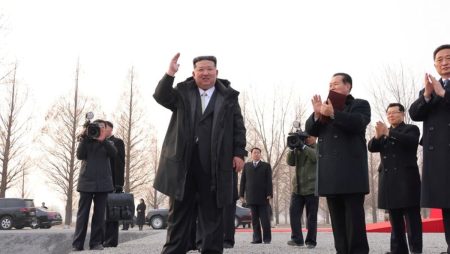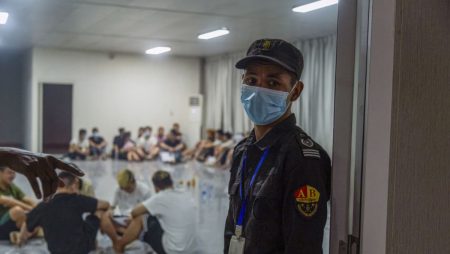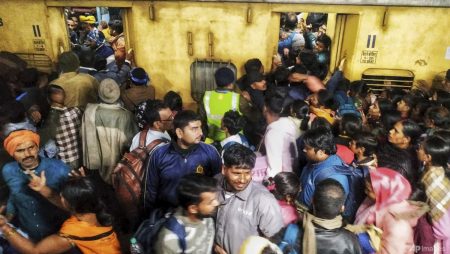Campaigning for Crucial Mid-Term Elections Begins in the Philippines
Campaigning officially kicked off in the Philippines on Tuesday, February 11, marking the start of a highly anticipated mid-term election season. These elections, scheduled for May 12, are not just about filling over 18,000 government positions nationwide; they also carry significant weight in shaping the country’s political landscape, particularly for the next presidential race. At the center of this political storm is Vice President Sara Duterte, who was impeached by the House of Representatives last week on charges of "violation of the constitution, betrayal of public trust, graft and corruption, and other high crimes." Her political future now hangs in the balance, and the outcome of these elections could determine whether she will be able to run for president in the future.
The elections have drawn a colorful mix of candidates, including talk show hosts, movie stars, and even a preacher who was previously jailed on sex-trafficking charges. These individuals are vying for 12 open Senate seats, positions that come with a unique and unintended responsibility: serving as jurists in the impeachment trial of Vice President Duterte. The stakes are high, as the Senate’s composition after the elections will play a pivotal role in deciding her fate. If convicted, Duterte would be barred from holding public office, including a presidential run she has hinted at considering seriously.
The Senate’s Role in the Impeachment Trial
The Senate, which has 24 seats, will act as both judge and jury in the impeachment trial of Vice President Duterte. To secure a conviction, 16 out of 24 senators must vote in favor of it. This means that the outcome of the trial will largely depend on the political alliances and priorities of the senators elected in May. The next Senate’s composition will be crucial in determining whether Duterte will be cleared of the charges or face the consequences of impeachment.
The political science department head of the University of Santo Tomas, Dennis Coronacion, emphasized the significance of the Senate elections in an interview with AFP. He stated, "The composition of the next Senate will be crucial," highlighting how the trial’s outcome will be shaped by the senators’ decisions. This has not gone unnoticed by the Duterte camp, which has urged voters to "choose wisely who they will vote for, especially in the Senate, where the fate of VP Sara will be decided."
Public Opinion and the Impeachment Issue
As the campaign season progresses, public opinion on the impeachment of Vice President Duterte remains divided. Some voters, like Gina Tamayo, a 43-year-old fruit vendor, have made it clear that they will not support candidates who might vote to impeach Duterte. Tamayo expressed her support for the vice president, saying, "I don’t believe the allegations against her." Her sentiment reflects the strong backing that Duterte still enjoys among many Filipinos, who view her as a capable leader.
On the other hand, not all voters are swayed by the impeachment issue. Charity Vargas, a 39-year-old voter, stated that her decision will not be influenced by the ongoing trial. She emphasized her focus on electing candidates who have proven themselves to be honest and effective. Her stance highlights the diverse priorities of Filipino voters, many of whom are more concerned with issues like economic stability, corruption, and governance than the impeachment proceedings.
The Broader Implications for Philippine Politics
The mid-term elections are not just about the fate of Vice President Duterte; they also have significant implications for the broader political landscape of the Philippines. The elections serve as a preview of the 2028 presidential race, with candidates and political parties positioning themselves for future power. The alliance between President Ferdinand Marcos and Vice President Duterte, which has imploded spectacularly, adds another layer of complexity to the political dynamics at play.
The involvement of high-profile candidates, including celebrities and controversial figures, has brought a level of drama and unpredictability to the elections. While some candidates leverage their fame to gain votes, others rely on their political track records and promises of reform. The outcome of these elections will not only determine the political future of Sara Duterte but also set the stage for the next presidential race, shaping the direction of the country for years to come.
A Nation at a Crossroads
As the Philippines gears up for this critical election, the nation finds itself at a crossroads. The impeachment trial of Vice President Sara Duterte has put the country’s political institutions to the test, raising questions about accountability, justice, and the rule of law. The elections provide an opportunity for Filipinos to voice their opinions on these issues and shape the future of their democracy.
The diverse range of candidates and the high stakes involved have made these elections one of the most closely watched events in recent Philippine history. Whether the outcome will lead to political stability, further polarization, or a new era of leadership remains to be seen. One thing is certain, however: the 2024 mid-term elections will leave a lasting impact on the Philippines, its people, and its political future.












